CHICAGO IN THE AGE OF CAPITAL
Class, Politics, and Democracy during the Civil War and Reconstruction
John B. Jentz and Richard Schneirov
UNIVERSITY OF ILLINOIS PRESS
URBANA, CHICAGO, AND SPRINGFIELD
2012 by the Board of Trustees of the University of Illinois
All rights reserved
Manufactured in the United States of America
C 5 4 3 2 1

This book is printed on acid-free paper.
Library of Congress Cataloging-in-Publication Data
Jentz, John B., 1944
Chicago in the age of capital : class, politics, and democracy during the Civil War and Reconstruction / John B. Jentz and Richard Schneirov.
p. cm. (The working class in American history)
Includes bibliographical references and index.
ISBN 978-0-252-03683-5 (hbk. : alk. paper)
1. LaborChicagoIllinoisHistory19th century.
2. Working classChicagoIllinoisHistory19th century.
3. CapitalismIllinoisChicagoHistory19th century.
4. IndustrializationChicagoIllinoisHistory19th century.
5. Chicago (Ill.)Social conditions19th century.
6. Chicago (Ill.)Economic conditions19th century.
I. Schneirov, Richard. II. Title.
HD8085.C53J46 2012
331.09773'1109034dc23 2011039506
John Jentz dedicates this book
to the memory of his parents,
Ralph C. Jentz and June S. Jentz.
Richard Schneirov dedicates the work
to his wife, Silvia, and his two sons,
Zachary and Nathan.
Preface
In its conception and its writing, this book has been a collaborative project with continuous and systematic interaction between the authors. Over time, we have developed a bond, based on a common understanding and shared interpretive outlook. We have both learned enormously from each other throughout the long course of this joint project, which has been in gestation since the early 1980s.
John Jentz and Richard Schneirov came out of similar scholarly networks in the 1970s and 80s. Jentz worked closely with Eric Foner and Herbert G. Gutman at the Graduate Center of the City University of New York, while Schneirov owes intellectual debts to Alfred F. Young and Martin J. Sklar at Northern Illinois University. Their scholarly collaboration originated in the research project led by Professor Hartmut Keil of the America Institute of the University of Munich and funded by the Volkswagen Foundation, which studied German workers in Chicago in the late nineteenth and early twentieth centuries. This project, which ran from 1979 to 1983, also maintained vital links to German scholars, among whom was Dirk Hoerder, a scholar of labor and migration history, who was also a colleague and collaborator with Alfred Young.
The Chicago Project led to the grant funded by the National Endowment for the Humanities (RS-2039383) entitled Origins of Chicagos Industrial Working Class and based at the Family and Community History Center of the Newberry Library in Chicago. Jentz was principal investigator, while Schneirov was the other investigator for the project; later, Robin L. Einhorn served as a research associate, providing critical help in processing and evaluating the census data. Kathleen Neils Conzen and Eric Foner gave advice at critical junctures in the research. This project provided the resources necessary for most of the basic research used in this book in both newspapers and the manuscript censuses. The community of scholars at the Newberry created a supportive environment for discussing the import of our work, with special thanks going to the Chicago Area Labor History Group, whose critical readings of works in progress helped us digest evidence and frame issues.
In the period since the decade of the 1980s, the manuscript has undergone enormous changes and several drafts. Most important, we decided to jettison the thick description of events and adopt a new conceptualization focusing on the rise of capitalism during the Civil War and Reconstruction, which provided the context for the emergence of a class-based urban politics and new social movements. We presented the basic theoretical framework of the book to scholars and critics at meetings of the Social Science History AssociationNovember 2007and the Labor and Working-Class History AssociationMay 2009both held in Chicago. There we received thoughtful comments from Susan E. Hirsch, Rima Schultz, and others at the conference.
Throughout the course of the writing of the book, we have incurred numerous intellectual debts from scholars, including Eric Foner, Mary O. Furner, Rima L. Schultz, David R. Roediger, and Alan Lessoff. The comments of Mary Furner, James R. Barrett, and an anonymous reviewer for the University of Illinois Press were particularly helpful.
In addition to intellectual debts, we have many personal and financial ones. We would like to thank the community of archivists and librarians, particularly those at the Chicago Historical Society, now the Chicago Historical Museum, and the Newberry Library, for their ready responses to our endless requests. To the Indiana State University we owe special thanks for contributing to the subvention that helped make publication of this book possible. We want to thank the University of Illinois Press for permission to use parts of Richard Schneirovs essay Chicagos Great Upheaval of 1877: Class Polarization and Democratic Politics published in The Great Strikes of 1877, edited by David O. Stowell (2008), 76104. Sections of this article appeared earlier in Chicagos Great Upheaval of 1877 by Schneirov published in the March 1980 edition of Chicago History (vol. 9, no. 1, pp. 217). We thank the Chicago Historical Museum for permission to use these sections. Selections from these two essays appear in chapter 6 of this work.
John Jentz owes thanks to the deans and department heads of Marquette Universitys Raynor Memorial Libraries for their support of his historical projects as well as his career as a librarian. Special acknowledgement goes to colleagues Valerie Beech and Brian Evans for their help in producing the figures and maps for the book. Richard Schneirov would like to thank Indiana State Universitys College of Arts and Sciences and the History Department for their financial support of this project.
We both owe debts beyond measure to family and friends who have supported and sustained us over the years. We could not begin to name all of them. Thanks to everyone.
Introduction
In 1821, James Madison predicted that, with the exhaustion of the countrys reservoir of open land, Americans would face the prospect of rising inequality, including a dependence of an increasing number on the wealth of a few. Madison thought the main form of dependency would arise from the connection between the great Capitalists in Manufactures and Commerce and the members employed by them. Like other founders, he believed that wage labor promoted servility and dependence and that a balanced distribution of landed property and the independence it provided was necessary for a viable republic. It was hardly conceivable that a republic composed of a permanent wage-worker class could survive. Nonetheless, as the proportion of wage earners in the labor force overtook the self-employed in midcentury, it became impossible to ignore the question of wage labor.

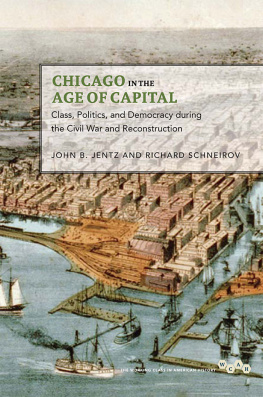

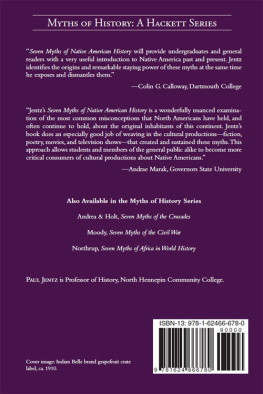
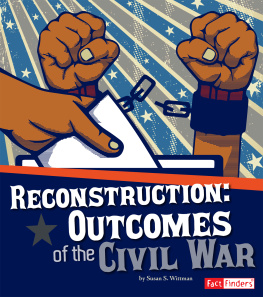
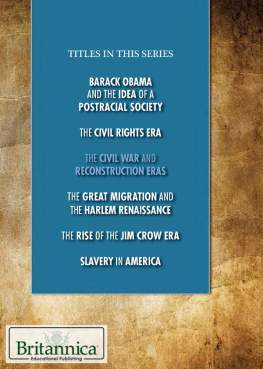
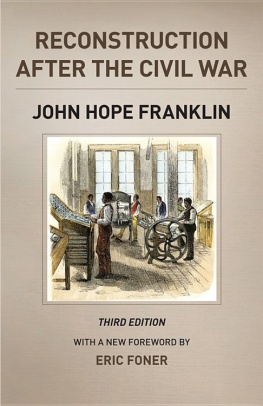

 This book is printed on acid-free paper.
This book is printed on acid-free paper.